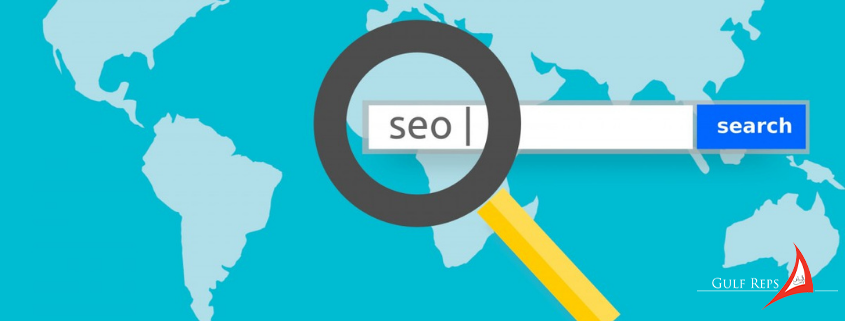All You Need to Know About Tourism SEO
Search Engine Optimization or SEO is the digital marketing practice of increasing website traffic (or viewers) from search engines such as Google. SEO specialists write website content and optimize it so that their content appears on Google’s search results once a specific term is searched. Chances are, if you ever asked Google a question, the answer that was retrieved was put there by an SEO specialist trying to channel more traffic to their website and build their brand or generate leads. This blog will cover everything you need to know about tourism SEO.
What is SEO in Tourism?
In tourism, SEO is usually used to capture potential customers when they are researching their next destination. SEO helps tourism businesses appear on the first page of Google’s search results. For example, when the keyword “Bali Hotels” is searched on Google, the first three results are usually the pages that garner the most traffic. Therefore, these websites are more likely to earn hotel bookings than those that don’t receive traffic. Henceforth, a firm SEO strategy is needed by these hotels so that they can compete for the top three positions on Google for all the keywords relevant to their industry.
It is not surprising that 80% of Americans make holiday bookings online using a PC. These individuals also primarily conduct their holiday destination research online. Furthermore, about 50% of those online searches occur primarily on smartphones. As consumer behavior in fast-moving Middle Eastern metropolis’ like Dubai is similar to that of the US, it can be assumed that the above data applies to the Middle East as well. Furthermore, this data is reflected in modern SEO’s “mobile-first” strategies, aiming to make website content seamlessly accessible and translatable to a smartphone’s small screen. For SEO specialists, this usually means building two website experiences for users, one for PC and another for smartphones.
But that is just the tip of the iceberg. SEO has numberless uses in the realm of tourism.
How is Tourism SEO Done?
One of the SEO specialist’s main tasks is publishing content on their website that answers the questions of their target segment. (Sidenote: Refer to the “What are the Main Areas of SEO” section below for more about the components of SEO). That way, they ensure they are able to appear on relevant users’ screens. Tools such as SEMrush are used to identify what a targeted segment is searching online. Once keywords have been generated from these tools, batches of content revolving around these keywords are written and published.
Another approach for creating tourism SEO content is considering the travel customers’ journey. This customer journey can be divided into four parts: 1) Dreaming, 2) Planning, 3) Booking, and 4) Experiencing. A series of blogs can be written for each stage of the travel customer’s journey, for every segment’s unique customer journey.
Dreaming: I Want to Get Away Moments
This is when potential travelers start to notice their desire to travel. It may come in the form of a fleeting desire that they have not yet acquiesced to. At this stage, the traveler may engage their infatuation with the idea of traveling by brainstorming travel ideas and Googling something along the lines of “Cheapest time to travel to Paris” or, if they are flirting with the idea of a wellness holiday, it may be “wellness retreats in Japan.”
At this stage, the traveler has not yet decided on a brand to commit to, be it an airline, accommodation, or even a destination. Data from Google shows that 67% of the time, travelers will book from the brand that provides them with the information they are looking for.
For more on the “I Want to Get Away” stage of the traveler’s journey, refer to Google’s travel industry trends article linked to at the beginning of this sentence.
Planning: Time to Make a Plan Moments
The planning stage is where the traveler has already set their minds on a specific destination and is now planning the specifics. For example, whether they should rent a car or lean on public transport once they are there. Perhaps they will start searching for theatre tickets at discounted prices or start planning their shopping stops by viewing online sites.
The traveler needs specific information at this stage, such as price, timelines, and availability. Once again, the SEO that can provide them with this much-needed information will likely win customers for their brand and increase their website traffic.
There also lies an excellent opportunity for affiliate marketing at this stage in the case of business owners doing their own SEO. Affiliate marketing is where the website owner directs attention or leads to another business’ goods or services through a link. This is usually done in exchange for a percentage of sales should the website visitors convert to buyers. Links to discounted offers of goods and services are befitting at this point as the traveler is trying their best to fit everything into a predetermined budget.
For more on the “Time to Make a Plan” stage of the traveler’s journey, refer to Google’s travel industry trends article linked to at the beginning of this sentence.
Booking: Let’s Book it Moments
In the booking stage, the traveler has a large portion of the specifics of their trip settled and is ready to pay for bookings. This primarily includes the flight they will book and the accommodation they want to check-in to. It is wise to provide many pictures of the accommodation for searchers at this stage as it is generally a natural part of their journey right before completing the booking. Convincing photographs and a generous amount of them will help convert these customers faster. There also seems to be a mistrust for smartphone apps and websites when it comes to the final deed of making the booking. As such, many users switch to a personal computer to avoid difficulties. SEO specialists can capitalize on this opportunity by communicating the integrity of their mobile experience. Doing this may very well be the difference between the customer booking from another vendor while they wait to get a chance to use their PC to place a booking with your brand. Targeted Google or social media ads that do this are not unheard of.
For more on the “Let’s Book It” stage of the traveler’s journey, refer to Google’s travel industry trends article linked to at the beginning of this sentence.
Experiencing: Can’t-Wait-to-Explore Moments
This is the stage where travelers’ imagination goes wild. Their tickets are booked, the date is set, and the day is inching closer and closer. As travelers get excited about the incoming holiday or trip (and when they arrive and start to explore it) they begin to thirst for more information about the experience they are currently undergoing. This is an important touchpoint for marketers as providing useful information and expressive pictures and videos is a great way to build a brand and grow customer loyalty at this stage. There even lays an opportunity for upselling existing customers in some instances. Marketers should, however, be careful with upselling. Repeated upselling attempts can be viewed as intrusive and can hurt your brand.
This stage has the highest online smartphone use. Brands that can provide their visitors with local knowledge about the stops they will be making on the trip will stand high in customers’ eyes. There also lies a potent opportunity for digitizing services through smartphones. The Hilton, for example, allows visitors to bypass the receptionist at check-in, go directly to the suite/room and decide which one they want to stay in, all by downloading the Hiltons app.
For more on the “Can’t Wait to Explore” stage of the traveler’s journey, refer to Google’s travel industry trends article linked to at the beginning of this sentence.
How Tourist Agencies can benefit from SEO
Aside from generating online leads, SEO can also be used to position tourist agencies as thought leaders by providing valuable and educational content on their websites that nurtures leads and provides a solution for all their unanswered questions.
What are the three main areas of SEO?
- On-Page SEO: This is everything done on your website to help you rank. Writing content, keyword optimization, and interlinking are all examples of on-page SEO.
- Off-Page SEO: This is when other websites link to your website (backlinks) and help shape you as an authority and, in turn, increase your ranking on Google.
- Technical SEO: This is mainly concerned with making your website fast enough for users and making your pages crawlable and indexable for Google crawlers. Pages that are not crawled and indexed will not rank on Google.
What are the four types of SEO?
- White Hat SEO: This is where marketers use techniques recommended by Google to help their website rank. This includes things like creating great content and providing a robust user experience.
- Black Hat SEO: These techniques exploit loopholes in the Google algorithm to help sites rank higher. Things like keyword stuffing and buying backlinks (which are frowned upon by Google and are eventually penalized) are examples of Black Hat SEO tactics.
- Grey Hat SEO: These techniques aren’t exactly crooked but aren’t 100% recommended. Things like clickbaity titles and link exchanges are considered Grey Hat SEO.
- Negative SEO Attack: This is when a competitor uses grey hat and black hat SEO to bring down your rankings. Directing unnatural links to your site or giving you bad reviews are both considered negative SEO attacks.
Gulf Reps and Tourism SEO
Gulf Reps utilizes the power of SEO as part of its strategy to get in front of relevant stakeholders; it is how you are currently reading this blog. What is the message we want to get in front of you? It is a kind introduction to our company and our services.
Gulf Reps is the leading travel and tourism representation company in the Middle East, with over 60 years of regional and industry experience. We have served clients on six continents, delivering transformative results to everyone from hoteliers to tourism boards. Our mix of world-class marketing expertise, PR specialists, unparalleled connections and relationships, and eclectic mix of marketing channels makes working with Gulf Reps the only sure way to drive Middle Eastern tourists to your destination.
To find out more about our services, you can call us at +971 (0)4 703 6333 or write to us at sammy@gulfreps.com



